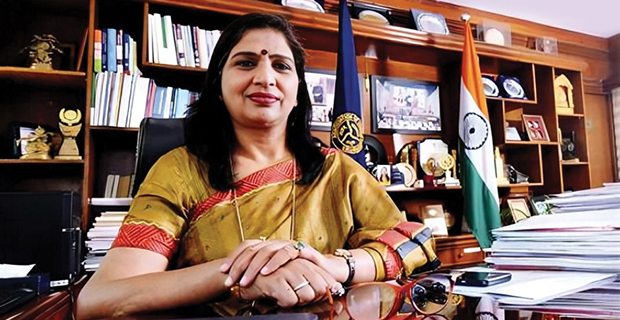“India becoming Global Education Hub”
In an exclusive interview, Dr. Pankaj Mittal, Secretary General, Association of Indian Universities (AIU), speaks to Business Editor Yogesh Sood
You hold the coveted position of Secretary General of AIU, which is the apex leadership position in Higher Education in the country. Could you share your vision for the future of higher education in India?
The future of Indian higher education depends on implementing key NEP 2020 recommendations. Priorities include institutional autonomy, multidisciplinary and skill-based education, international collaborations, and integrating technology with expanded digital learning access. Strengthening research, building global partnerships, and fostering industry-academia linkages are critical for improving employability and global competitiveness. Emphasizing sustainability and inclusivity will drive innovation and sustainable growth, positioning India as a global hub for academic excellence.
How is AIU contributing to the growth and development of Indian universities?
AIU plays a vital role in the growth and development of Indian universities through its various initiatives including advocacy of the interests of Indian universities at national and international levels, providing a platform for universities to exchange ideas and share best practices, working closely with the government on policy issues, capacity building to enhance leadership skills, academic equivalence, international collaboration, and information dissemination.
What Leadership initiatives AIU has taken to promote Quality assurance and accreditation in Indian Universities?
AIU has been actively involved in creating awareness about quality assurance mechanisms and accreditation processes. AIU promotes the adoption of best practices to improve teaching, learning, and research quality across member institutions by organising roundtables for newly appointed vice-chancellors, workshops, conferences, and promoting collaborations at national and international levels.
How do we ensure accountability and transparency within AIU’s governance structure to build consensus among member universities?
AIU ensures accountability and transparency through its inclusive governance structure, led by the Governing Council, which frames by-laws and oversees decision-making. With diverse representation from all zones of India, AIU promotes participation and consensus-building among member universities. Specialized committees, such as Finance, Research, and Cultural Committees, enhance oversight. Regular Zonal Meetings and Annual General Body Meetings ensure financial and institutional transparency, with annual progress reports and external audits presented. The President oversees committee activities, ensuring alignment with AIU’s mandate and objectives, while the Secretary General, as the Principal Executive Officer, maintains records, ensures compliance, and implements policies. This leadership structure ensures smooth operations and decision-making with high accountability.
What are AIU’s key priorities for the next 12-18 months vis-a-vis new initiatives or programs you plan to launch?
In the coming months, AIU will prioritize promoting the internationalization of higher education. A dedicated website for the “Indian Network for Internationalisation of Higher Education (INIHE)” has been launched to provide a platform for both Indian and foreign HEIs. Key initiatives include hosting regular higher education summits, launching the India Immersion Programme, and creating more opportunities for international academic collaborations, with the goal of attracting more international students to Indian HEIs. Additionally, AIU will focus on capacity-building initiatives for faculty and leadership development to help Indian universities address global challenges and opportunities effectively.
What are the major challenges facing Indian universities today, and how can AIU address them to promote innovation, research, and entrepreneurship?
Indian universities face several challenges, including outdated curricula, traditional teaching methods, and a shortage of qualified faculty, all of which affect the quality of education. Limited funding and infrastructure hamper research and innovation, while affordability and equitable access remain critical concerns for marginalized students. A complex regulatory framework restricts institutional autonomy, and there is a mismatch between education and job market needs, leading to skill gaps among graduates.
AIU is addressing these issues by advocating for increased investment in research, curriculum reform, and promoting university-industry collaboration. It conducts zonal and annual meets of vice chancellors to discuss academic challenges and solutions. AIU also works with NITI Aayog and government bodies to push for policy reforms, including greater institutional autonomy and improved research funding. Through internationalization efforts, AIU fosters global collaborations, faculty exchange, and cross-border research initiatives, while also promoting skill-based learning to align education with job market demands.











Comments.